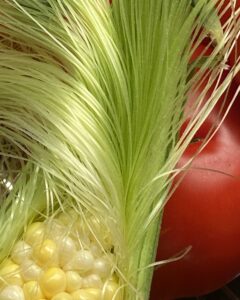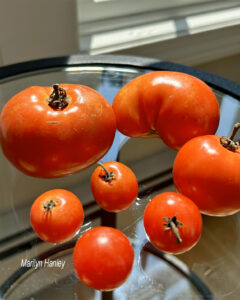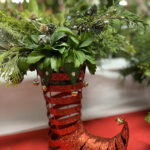Dear Community Giving Gardener,
We hope your 2023 gardening season has been successful and rewarding. We appreciate your continued support of our new Community Gardening initiative and have valued hearing from you about your experiences growing and harvesting vegetables and your donations to others. For those of you who have not completed your Harvest Update Form, there’s still time to share your experiences and suggestions. Please click on the link above and you will be taken to the form, which only takes a few minutes to complete.
 As fall weather quickly approaches, it’s important to complete harvesting your vegetables and begin cleaning up your garden. Here are some tips for how and when to tackle these important gardening tasks, so you can have a successful growing season next year.
As fall weather quickly approaches, it’s important to complete harvesting your vegetables and begin cleaning up your garden. Here are some tips for how and when to tackle these important gardening tasks, so you can have a successful growing season next year.
Complete your vegetable and herb harvest and plant garlic
- Harvest summer/remaining vegetables, like tomatoes and peppers off the vines.
- Tip: green tomatoes will ripen quickly if you leave them on a sunny window sill.

- Tip: green tomatoes will ripen quickly if you leave them on a sunny window sill.
- Save the seeds of tomato, pumpkin, zucchini, and cucumber plants, dry them, and then save dried seeds in marked envelopes in a cool, dry place for next year.
- Plant garlic in October and November (mid Autumn) after the temperatures have dropped significantly and before the ground freezes. Plant a hard neck garlic which has a central stalk, produces about six large cloves and performs best in northern climates. Plant garlic in loose soil in rows, one clove about every 6 inches and 2 inches deep. Cover the cloves with 2 inches of straw or mulched leaves to protect the blubs in the winter.
Steps for fall vegetable garden clean up
- Remove summer dying or diseased plants: Eliminate and dispose of diseased plants separately in the trash to stop the spread of bacteria and fungi. Also, remove weeds and plant material after you have harvested your crops. Cut down standing plants (soil height or pull up entirely by roots). Chop beans and peas off at ground level, leaving their roots in the soil to feed next year’s crops. Remove squash and zucchini plants to eliminate squash bugs that can survive during the winter and infest your garden in the spring.
- Build your compost pile: Shred or break up your healthy plant material into small pieces and add it to your compost pile to create a rich organic matter for your garden next year.
- Weed: It’s most important to weed in late summer and autumn because just one weed left to mature can produce hundreds and thousands of seeds that will grow into weeds plaguing your garden next year. Weeding also prevents the growth of their permanent root systems.
- Expand your garden beds: Consider adding some raised beds in the fall. If grow bags and pots worked well for you, consider additional bags and pots to experiment with different herbs and vegetables.
- Enrich your garden soil: Fall is the perfect time to make your garden’s soil healthier. Replenish it with compost, rotted mature or organic matter, about 3 to 6 inches. Mix organic matter into the top 4 to 6 inches of your garden beds. You can also cover it with shredded tree leaves. These organic amendments will decompose over the winter and enrich your soil. Next spring turn it over into the top 6 inches of the garden bed.
- Take inventory of your crops and analyze your garden: Make notes of crop placement and alternate the following year, so you rotate them and avoid depleting your soil of the same nutrients each year. Write a few notes or keep a journal about what worked well in your garden and what you’d like to improve. Order seeds for next year.
- Test your soil: Testing your soil in the fall helps you determine if it’s lacking nutrients or has a pH that isn’t ideal for your plants. Take a sample by mixing scoops of soil from several beds around the garden. Your local cooperative extension group may provide free or low-cost tests or purchase a test from your local garden center and amend your soil as needed. Or visit the University of Massachusetts Amherst, Soil and Plant Nutrient Testing Laboratory through this live link.
- Take care of your garden shed and tools: Use a wire brush to scrub off the soil on tools, like trowels and hoes, to avoid rusting them. Be sure to disinfect tools that might have come in contact with diseased plants. We hope that this information is helpful. P





